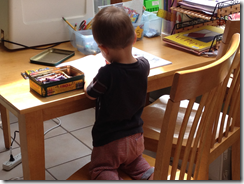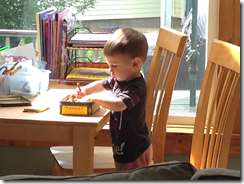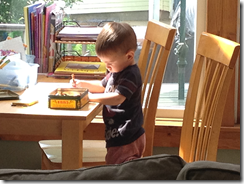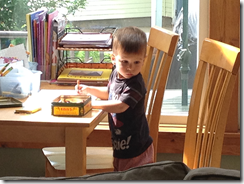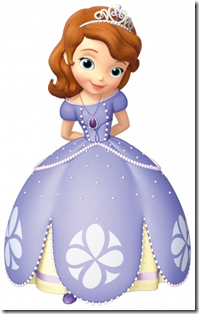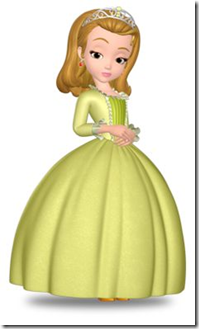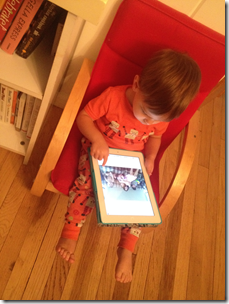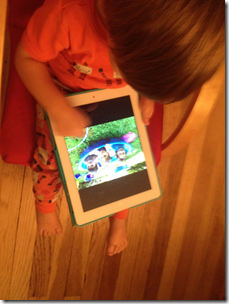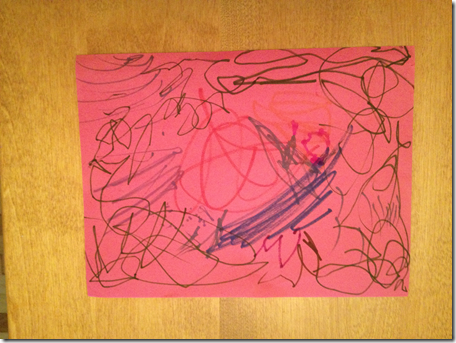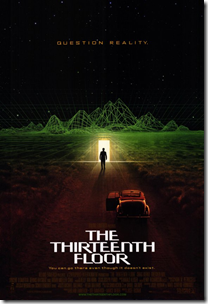Matthew Dicks's Blog, page 386
August 8, 2014
Possible future artist (and something else, I hope)
My son has recently shown a love for coloring, painting, and the like.
I would love to see him take up a career in art. He just needs to have a backup career, in the event things don’t work out immediately.
The expression “starving artist” exists for a reason.
Stupid super dads suck
Three of my friends built tree houses for their children.
One (and maybe two) are minor death traps, but still. These men designed and built things with wood and nails.
I can’t tell you how impossible that sounds to me.
My daughter wants a tree house. Knowing that I have twice asked a friend to fix lamp only to find that it needed a new bulb, she is saving her money for one rather than asking me to build one, which makes a lot of sense and also hurts my feelings.
Tree houses are one thing. Spacecraft simulators like the one this man built for his sons are an entirely different thing.
He sucks. I hate him.
August 7, 2014
When it comes of purposeful procrastination, Mark Twain agreed with me. I can’t be nearly as stupid as people think.
“Never put off till tomorrow what may be done day after tomorrow just as well.” – Mark Twain
I have a policy wherein I never complete mundane or unnecessary assignments until the moment before they are due, because if this is the last day of my life, I would hate to have spent it completing paperwork that was due next week.
People often scoff at this policy, usually for one of three reasons:
They think that attempting to live each day as if it were your last is foolish.
They obsessively complete tasks as quickly as possible and can’t imagine doing otherwise.
They think that I’m simply making excuses for procrastination or laziness.
It appears that Mark Twain would’ve agreed with me, and he’s a lot smarter than any of my critics.
August 6, 2014
Amber has every right to hate Sophia. I should know.
My daughter loves Sophia the First.
For those of you without small children, this is one of the latest Disney princesses with a television show and a seemingly endless line of merchandise. Other than the fact that her head is three times the size of her waist and her eyes are scary big, she seems harmless.
Clara loves Sophia. When we play with her Sophia the First toys or she dons her Sophia the First dress, she forces me to play with Amber, Sophia’s similarly dimorphic, stereotypically bitchy stepsister.
It’s fine. As an author, I recognize the need for conflict in storytelling. I don’t mind playing the bad guy.
I’m actually great at playing the bad guy, as many of my students would attest.
Then I gave Clara a Sophia the First book and read it aloud to her. I had never watched the show, so for the first time, I learned the story of this new anorexic Disney princess.
Sophia and her mother live alone. There is no father in the picture, and his absence is never explained. Sophia’s mother marries King Roland, and Sophia instantly becomes a princess. Roland has two children, Amber and James. Their mother is also inexplicably missing.
Maybe she ran off with Sophia’s father.
Take note Disney. That would be an awesome storyline.
As a result of the marriage, Amber and James become Sophia’s stepsiblings.
As a way of welcoming Sophia into the family, Roland gives Sophia the Amulet of Avalor. This amulet allows Sophia to call on any prior Disney princess in time of need. It also allows her to speak to animals and grow a mermaid tale and swim like a fish.
Because that makes sense.
Amber was Roland’s motherless princess daughter long before Sophia appeared, and yet Roland chose to keep the most powerful magical amulet in the world stuffed in some drawer until his new stepdaughter came along.
If I were Amber, I’d be angry, too.
If I were Amber, I’d want to rip Sophia’s oversized head right off her undersized body.
I know I seem a little overly invested in this show. I shouldn’t be so emotionally attached to a Disney princess, but please understand this:
I have been playing the role of Amber, both with plastic Amber figures and in real life, for years now. I’m no great actor, but even an amateur like me, with a smidgen of local theater under his belt, can get attached to a role and begin to empathize for a character.
I feel Amber’s pain. I know Amber at her core.
More importantly, I know Sophia. She is a a spoiled, self-righteous, falsely modest, ditzy jerkface who is trying to steal the love of King Roland and become his favored child.
She must be stopped.
Productivity tip #9: If your friends think your boyfriend is a jerk, he’s a jerk.
I know this isn’t the most traditional of productivity tips, but if this applies to you, the following advice may save you more time than any other productivity tip I could ever offer.
If you are dating someone who the great majority of your friends does not like, stop dating this person immediately.
In the history of human civilization, there has never been a boyfriend or girlfriend who someone’s closest friends hated or did not trust who they eventually came to love.
When it comes to romantic relationships, group consensus is always correct.
August 5, 2014
I suffered a wardrobe malfunction. I told the audience that they suck. Just another day in the life of an author.
I had the pleasure of speaking at the Cragin Memorial Library last night as part of the Connecticut Author’s Trail. A group of about 48 women and two men gathered to hear me speak, which I continue to find both humbling and astounding.
Rather than read from my novel, I tell stories about the writing of my most recent novel, the writing of my previous novels, and my life in general. How I became an author. Stupid things that I have done in my life. Lessons learned. My wife joined me for the event last night, which she usually doesn’t do, making it even more fun for me.
A few important observations from the evening:
______________________
I made my wife laugh on at least two occasions, and on the way home, she told me that I was “very funny.” Making my wife laugh is one of my primary goals in life, and it’s not easy. If I make her laugh even once in a day, I feel complete.
______________________
I always ask for a round of applause for the men in the audience, because there are generally so few. Men suck when it comes to reading fiction. Possibly reading in general. We need to do better in this regard.
______________________
I felt great about my talk even though my fly was apparently down for at least the last third of the talk. As soon as I finished speaking, I was surrounded my people who wanted me to sign their books. The first woman said, “Your fly is down. When you stuck your hands in your pockets, it started falling. Slowly.”
I laughed, thankful that this woman, sitting in the front row, was the only one who noticed.
Five other women then proceeded to tell me the same thing. “At least nothing fell out,” one woman said.
______________________
Part of my talk is to reward the person in the audience with the most unusual or challenging question (I want to encourage audience members to ask me anything), but for the first time, I failed to keep track of the question that stumped me the most. Last night’s prize was the German edition of Memoirs of an Imaginary Friend, so I gave it to a man whose son lives in Germany, though I felt as though this decision did not sit well with some people.
“If I had asked you why your fly was down, would that have been good enough to win the prize?” one woman asked.
“Yes,” I said. “You should’ve asked.”
Readers are the best.
______________________
I’m often asked about how my students, my friends, and my family feel about my books, and I am forced to explain how completely unimpressed they are with me. My students tend to be unimpressed with me in general, but my friends and family are equally unmoved by my authorial career.
The less you know about me, the more impressed you tend to be.
Last night I told the audience that I texted one of my closest friends last week to tell him to read The Martian by Peter Weir. “An amazing book that I know you’ll love.” He started reading immediately.
I spend more time with this man than almost any other friend. We play golf together. I taught his children. I taught his daughter twice. He is my son’s godfather. I have spent Thanksgiving and Christmas with his family. We are in a book club together. His home was featured in Memoirs of an Imaginary Friend.
Yet he has not read any of my books.
He’ll begin reading a novel on my recommendation alone, but as for the books written by his friend?
He’s unimpressed. Like everyone else.
______________________
I often tell audiences that they should all be writing, and I assign them the homework of writing every day for the rest of their lives. Over the years, a few have accepted my challenge, at least for a time, but not many.
A handful at most.
As a result, I’ve started to say, “But most of you won’t go home and write because it’s hard. You’d rather watch a stupid television show, eat potato chips, and dying forgotten and filled with regret.”
Or something similar.
I chastised my audience last night as well (I think I said that I was sure they wouldn’t complete my homework assignment because they suck), but I’m starting to think this insulting my audiences is not a good idea, even though they always laugh when I do.
I hereby release myself of all parental guilt regarding the iPad. It was shortsighted, stupid, and purposelessly nostalgic.
I brought my son downstairs for breakfast. As we stepped into the kitchen, he saw the iPad on the counter and said, “iPad! Chair! iPad! Chair!”
This is the two year-old version way of saying, “Father, I would very much like to take a seat in my favorite chair and make use of that glorious device.”
A large part of me wanted to deny him the use of the iPad. Breakfast would be ready in five minutes. There are a thousand toys in our home that he loves.
More importantly, I was suffering from iPad guilt.
I should avoid sticking my son’s face into a screen as much as possible, including now.
Charlie continued to beg, and so I surrendered, handing him the iPad. “Thank you, Daddy!” he said, as if knowing that a polite remark of appreciation would improve his chances of getting the device again in the future.
I started to make breakfast, feeling the weight of parental failure on my shoulders. I had done the modern day equivalent of what my parents did to me: Stick the kid in front of the television so he would stop whining.
I was ruining my son’s life. Destroying his attention span. Stealing his boyhood creativity. Taking the easy road.
Breakfast complete, I returned to Charlie to extract the iPad from his tiny clutches. I looked down. I saw this:
Charlie was sitting in his chair, scrolling through the hundreds of photographs of the family, calling out his sister’s name and touching his mother’s face and whispering, “Momma” whenever he saw it.
In that moment, I dispensed, once and for all, with iPad guilt.
For some incredibly stupid reason, I had decided long ago that smashing a toy fire truck into a toy bus while making growling sounds was an infinitely more valuable use of my son’s time than using an iPad.
Why is that?
My son sat down in his chair with the tablet, and of all the choices he had (and there were a lot), he opted to peruse the photo album. Had he come downstairs and demanded an actual photo album from the shelf, with real photographs, I would’ve been pleased. Ecstatic, even.
But on a screen? Not as good, or at least I used to think so.
I left Charlie on the iPad, scrolling through photos, while I folded the laundry. About ten minutes later, he closed the photo album and opened an interactive book. A narrator reads the fairy tale aloud as Charlie touches the characters to make them speak and act.
I realized that had Charlie grabbed a physical book and flipped through the pages, I would’ve been pleased.
But reading an interactive book on an iPad? Not as good.
This point of view, however, is insane. Charlie can’t read yet. Charlie flips through books on his own all the time, calling out colors, letters, and the names of objects. The poor boy wanted to actually hear the story read aloud, but for some inane reason, I saw this as a failure on both his and my part.
No more. No longer will I be sucked into this nostalgic, idealized, moronic view of parenting. As I’ve written about before, Charlie knows all of the letters of the alphabet thanks to the iPad. Without my wife or I encouraging, directing, or participating in any way, he learned to identify every letter, upper and lowercase. and knows the sounds that many of these letters make.
In a million years, I couldn’t have taught my two year-old son this skill, and I’m an elementary school teacher. But a cleverly designed app, that is both fun, interactive, and deceptively instructive, did the job.
How could I ever think of this was time wasted?
No longer will I view my children’s childhood through the lens of my own childhood, valuing the choices of my childhood over the rest. My children are growing up in a world in which they will do the vast majority of their writing and reading on a screen. They are growing up in a world where technological ability and efficiency are no longer prized. They are required.
I should not be worried that my two year-old son can operate the iPad, finding photo albums, music, books, videos, and learning games without our help.
I should be thrilled.
Please don’t get me wrong. We don’t let him use the iPad often, and this release of guilt will not change that. We don’t allow him to use the iPad for long stretches. We limit his time, say no to his requests for often than not, and believe that his day should primarily be filled with physical activity and time spend looking and listening and communicating with his family.
But some time spent with technology when his father is making breakfast, folding the laundry, writing an important email, emptying the dishwasher, sweeping the floor, or driving long distances?
No guilt. Not any more.
August 4, 2014
My daughter thinks she’s found the next Jackson Pollock. Or maybe she just loves her brother.
Our two year-old son drew on the wall with a crayon.
I was annoyed, of course, and told him so. As expected, he laughed and drew on the wall some more.
Our five year old daughter immediately came to her brother’s defense. “Maybe he’s trying to make a Jackson Pollock.”
An hour later, she appeared by my side and presented me with her own Jackson Pollock, in case I didn’t understand what she had meant.
August 3, 2014
Five ways I’ll know that I’ve finally made it as a screenwriter.
I write a movie wherein the male lead has been treated for serious injuries and attempts to get out of bed in order to save the day, only to be pushed back by his female romantic interest, who reminds him that he is still recovering from that thing that would’ve killed any normal person.
I write a movie wherein alcoholism is a disease limited only to men and can be cured by the need to save the world.
I write a movie wherein mechanical failures can be instantly repaired with punches, kicks, and head butts to parts of the machine that have nothing to do with the failure.
I write a movie wherein the intelligence of law enforcement officials is in inverse proportion to their rank.
I wrote about a dream I had last night. Three dreams, actually. But hearing about dreams usually sucks, so feel free to ignore.
I had a dream last night that I needed to be at a wedding in four hours but was more than four hours away.
I started driving like a maniac, but I knew I’d never make it. Traffic. Rain. A billion stops signs. The world was conspiring against me. Somehow I suddenly realized that I was in the midst of a dream (probably the unrealistic number of stop signs) and decided to change the parameters of the dream.
“I need to be there in six hours instead of four.”
Just like that, the time of the wedding was pushed ahead by two hours, giving me plenty of time to make the drive. The dream proceeded. I couldn’t believe it. I had consciously changed my dream and slipped right back into it’s reality.
I was so pleased that when I awoke in the morning, I told Elysha all about it. She was understandably underwhelmed. Stories about dreams always suck, as I’m sure you are thinking right now.
But then something strange happened. I realized that I was still dreaming. Elysha was still sleeping beside me. I was still sleeping. I was dreaming about telling her about my dream.
A dream within a dream.
For a guy whose dreams are almost always terrifying replays of real life events, this kind of complex, inventive dream was astounding.
Perhaps normal people dream like this all the time, but for me, it was a first. I’m usually engaged in a constant struggle to avoid being killed every night.
I decided that when I awoke, I would write about my dream within a dream, which I would normally never do. As I said, listening to someone recount their dream almost always sucks.
So that’s what I did, except then something else happened. I realized that I wasn’t writing about my dream within a dream. I was dreaming about writing about my dream within a dream.
A dream within a dream within a dream.
I watched The Thirteenth Floor last night (a good movie in serious need of a reboot) and the reboot of Total Recall (which was done well). I suspect that the combination of two films, which both coincidentally address the nature of reality, were the source of my own complex dream.
I’m also terrified of death and believe that there’s at least a good chance that we do not exist and only live within a computer simulation, so these two films spoke to me in a way that most others do not.
They did some serious poking at my existential terror.
Hence the dream within a dream within a dream.
Which turned out to be slightly more terrifying on a cognitive level than my typical night of trying to stay alive while the people in my dreams attempt to kill me over and over again.

